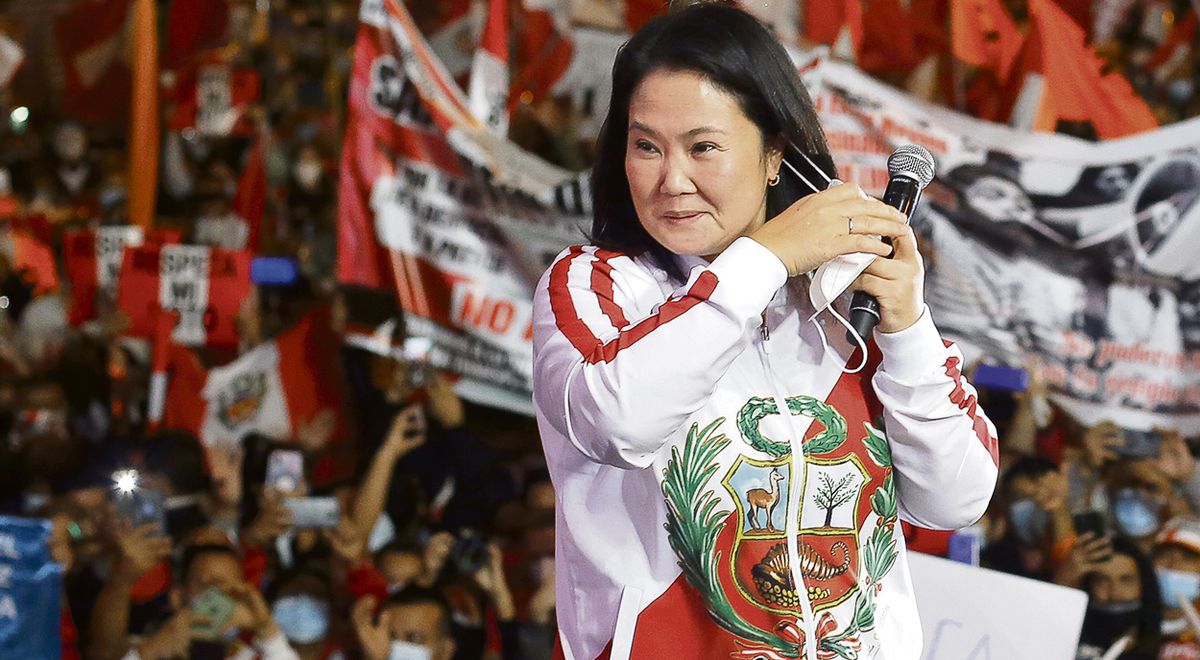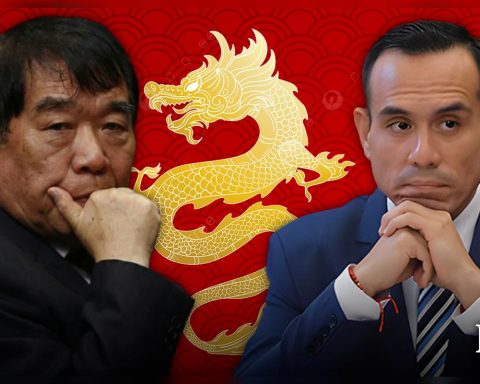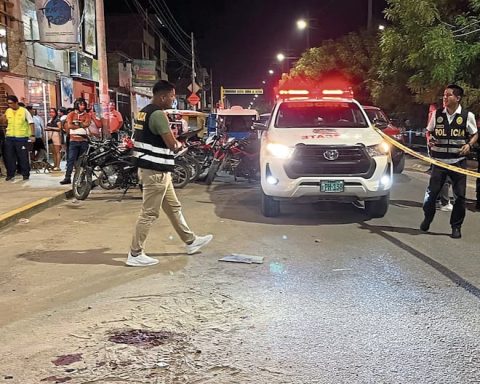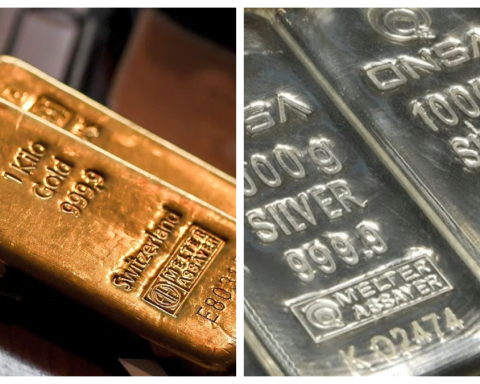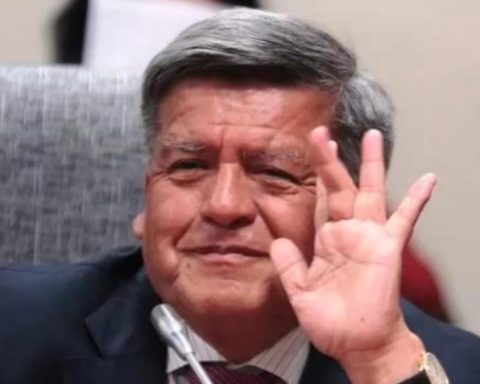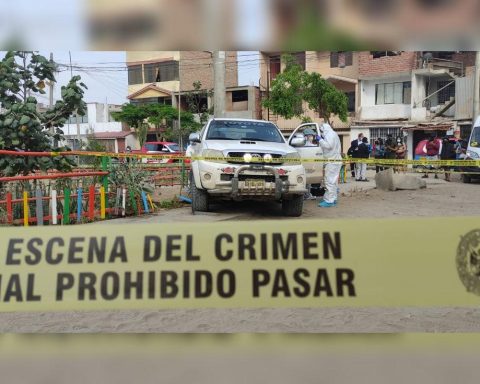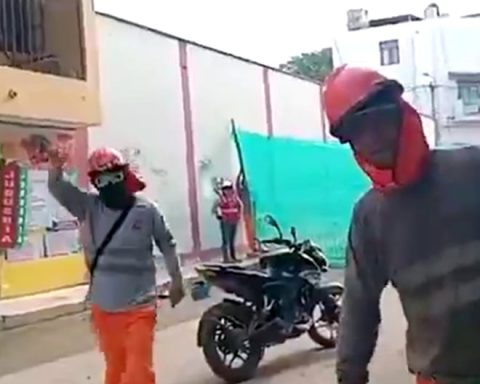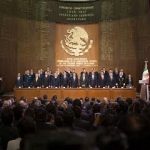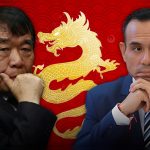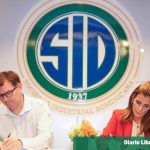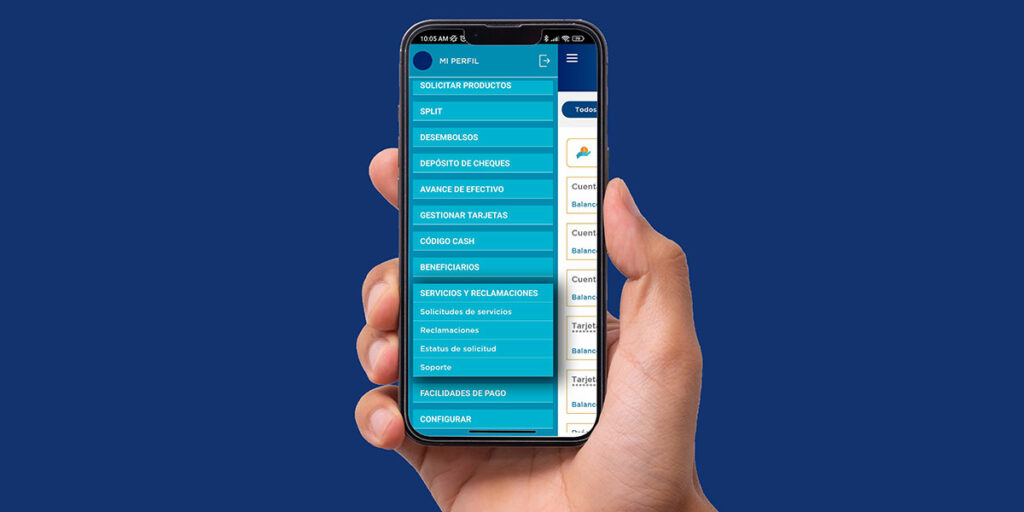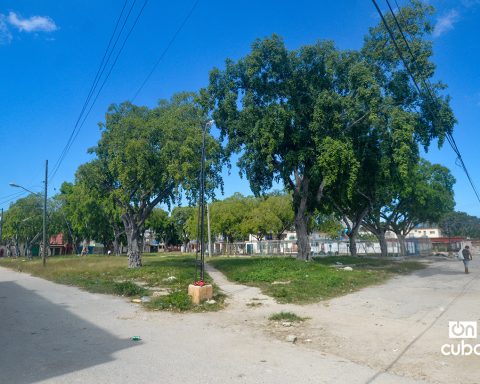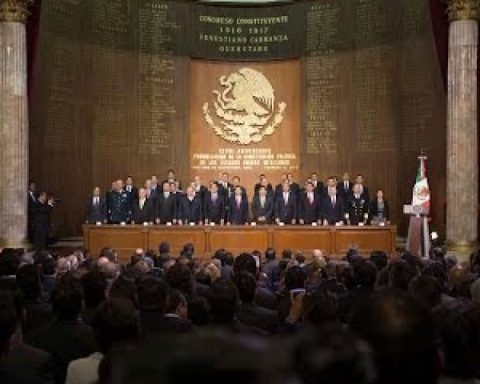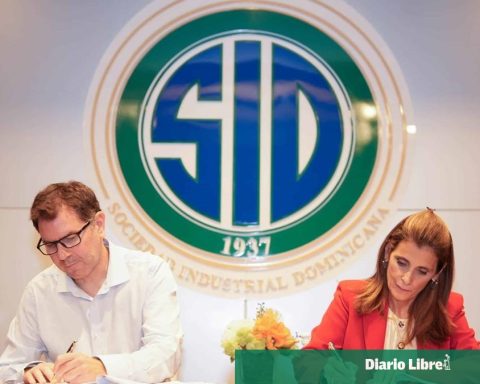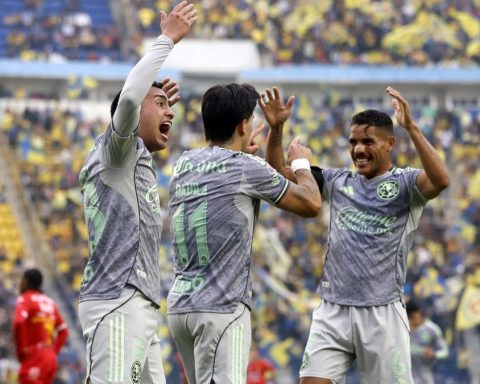The process continues. The discussion too. The preliminary investigation judge Víctor Zúñiga Urday rejected all the questions of the former presidential candidate Keiko Fujimori and the dome of People’s Force to file the indictment for money laundering from fraud in the administration of a legal person.
Zuniga Urday considered that the legal qualification that the prosecutor Jose Domingo Perez, of the special case team car wash, does about the acts carried out by the leadership of Fuerza Popular upon receiving clandestine contributions in cash, originating from fraud in the legal person, in the 2011 and 2016 campaigns.
The prosecution qualifies these acts as acts of money laundering from fraud in the administration of a legal person, committed by a criminal organization with defined roles and functions, which is directed by Fujimori.
Faced with this accusation, the lawyers of Keiko Fujimori and his main collaborators, Vicente Silva Checa, Pier Figari, Ana Herz, Jaime Yoshiyama, José Chlimper, Augusto Bedoya, Adriana Tarazona, the former president of Confiep José Ricardo Briceño and Fuerza Popular stated that this qualification does not conform to what the text of the criminal law says.
In this way, if the judge agreed with them, they avoided going to public trial, which will be the stage in which the evidence and testimony collected by the prosecutor José Domingo Pérez will be evaluated. In this sense, by supporting the accusation, the judge foresees that the public trial must be carried out anyway.
Although it should be noted that this resolution has not yet finished the debate. The aforementioned nine defendants appealed for a Superior Criminal Court of Appeals revisit your arguments and what the judge has ruled.
It is a technical legal discussion that it is foreseeable that it will last for years, until a definitive resolution is given.
The data. Judge Víctor Zúñiga Urday dismisses the request to file the accusation for money laundering against Keiko Fujimori and the leadership of Fuerza Popular. Photo: Antonio Melgarejo/The Republic
Three days
In this sense, the magistrate’s decision was predictable. Although all the lawyers raised the file of the accusation, the possibilities that they agreed with them were minimal. They knew it. In any case, it was evident that Judge Zúñiga’s resolution caused uneasiness.
There is also no indication that they will obtain a better result in the Appeals Chamber. The National Criminal Court has been supporting the work of the Public ministry and there are no indications to suppose that this will change.
A) Yes, the real objective of the lawyers was to initiate the debate and the procedure to reach the Supreme Court and, even more, the Constitutional Court, where over time they could have a better result. The passage of time always plays in favor of the defense.
For this reason, at the end of the reading of the resolution, the judge Victor Zuniga He informed the lawyers that they have a period of three days, which are counted from Wednesday, to submit their duly substantiated appeals in writing.
For this, he ordered that the clerk of the court give the lawyers a copy of the video of the hearing. This generated discomfort in the lawyers. The reading of the resolution covered three hours.
Giulliana Loza requested that, in any case, they also receive the written record of the hearing with the argumentative part of the judicial resolution, in order to duly support your appeal.
Zúñiga referred those requests to the secretary of the court and reiterated that the deadline to appeal is three days. He warned that he will reject any resource that exceeds that time.
Apparently, the magistrate wants to speed up the accusation control stage. This process takes more than a year and could be fulfilled more with appeals.
In addition, the hearings will continue on Wednesday, September 14. There is still another group of the more than 40 defendants who have also announced that they will challenge the money laundering charge.
Zúñiga has indicated that he will resolve group by group, following the scheme of the division of tasks of the criminal organization indicated in the fiscal accusation.
Judge Zúñiga’s decision is important for the process and represents a great boost for the special team of the Lava Jato case, ad portas that the Permanent Criminal Chamber of the Supreme Court start evaluating this very topic.
In 2019, the defense of the former president Ollanta Humala and the leaders of Peruvian Nationalist Party they also asked to file the charge for money laundering. In that case, the preparatory investigation judge Richard Concepcion Carhuancho and the Appeals Chamber told them no.
The Humalas appealed via cassation to the Supreme Court, which only between November and December of this year could review their appeal. Ollanta Humala is already facing public trial.
Thus, there are already two preliminary investigation judges who say that prosecutor Pérez is right to qualify the improper contributions as money laundering. Before, Concepción Carhuancho and today Zúñiga Urday.
arguments
The judge rejected the arguments of the defense attorneys jointly and only in some cases did he make individual clarifications, considering that their allegations were similar.
His argument focused on three aspects: 1) The legal qualification made by the prosecutor is correct based on the facts attributed to the defendants: the clandestine receipt of funds from construction companies Odebrecht and OAS involved in serious acts of corruption. In addition to the contributions of Credicorp, Sudamericana de Fibras and Confiep.
Acts that they would have carried out, the judge stressed, as part of a criminal organization, which had defined roles and functions, and which was led by Keiko Fujimori.
Candidate. Keiko Fujimori seeks to avoid public trial. Photo: diffusion
2) The judge must respect the accusation presented by the prosecution, therefore, it is prevented from modifying it in part or in its entirety, and being that some approaches made by the lawyers suppose to deny the facts, this only corresponds to be evaluated and resolved in the public trial.
3) He warns that the lawyers point out that there would be a temporary conflict between the money laundering criminal law and the electoral law, but they did not indicate what would be the most benign norm that should be applied to the accused, which should also be seen in the trial, since it also supposes an evidentiary evaluation.
In specific aspects, Zuniga Urday points out that although the jurisprudence indicates that money laundering is a crime, its stages are autonomous and are consumed individually, so the delivery of illicit money is sufficient for the crime to occur.
He stressed that to consummate the crime nor is it required that dirty money, once it has been laundered, return to the hands of the originator. The lawyers pointed out that having spent the money on the electoral campaign, there was no return; therefore, there is no crime.
In addition, the judge concluded that the law and the jurisprudence of the Supreme Court they do allow fraud in the legal person to be considered as a source of money laundering.
He explained that the money laundering law has an open list of source crimes in which any illicit act capable of generating profit enters. In addition, in the crime of fraud in the administration of a legal person, the business and its relationship with society.
Likewise, it would be irrelevant whether its directors or partners report the crime or not, since prosecution of the underlying crime is not required. Just point out its existence.
Regarding the questions when considering the mediate authorship due to dominance of a powerful organization, the judge considered that this is a qualification that the prosecutionthat It cannot be questioned at the accusation control stage, since it needs to be proven, which will only be done in the trial.
On appeal, the defense attorneys will insist with their arguments emphasizing that it is unnecessary to go to a public trial to assess the legal qualification made by the prosecutor.
Jose Domingo Perez will also plead in your favor. The opinion of two judges in his favor goes a long way toward fixing his theory.
Odebrecht. The secrecy of the contributions suggests that they knew of their illicit origin. Photo: Virgilio Grajeda/The Republic
Control
Accusation. Judge Victor Zuniga has been carrying out the formal and substantive control of the accusation presented by the Public Ministry against Keiko Fujimori and the Popular Force leadership. The lawyers will propose dismissing other issues on money laundering and criminal organization. Questions have also been announced about the quality and timeliness of the evidence presented by the prosecutor.
Humala and Fujimori depend on the Supreme
The Permanent Criminal Chamber of the Supreme Court will start evaluating in the coming months if the improper campaign contributions constitute money laundering, based on the appeal filed by Ollanta Humala, Nadine Heredia and their collaborators in the Peruvian Nationalist Party.
What the Supreme Court decides will be valid only for this case, but there is no doubt that if they accept the challenges against the qualification for money laundering, that will also favor and, in due course, reinforce Keiko Fujimori’s request and the Fuerza Popular party.
The Supreme Court, like Judge Víctor Zúñiga, could also conclude that it is the public trial where these issues of the legal classification raised by the Public ministry, for its evidentiary implications.
In this sense, the Supreme Court could only give guidelines for the judges to evaluate and make those qualifications. This could result in contradictory sentences, that is to say that some are convicted and others acquitted.
